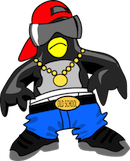
I’ve been asked by a few songwriters for advice on how to create good Hip-Hop and Rap songs. Because this is a little outside of my usual style, I asked a couple of successful Rap producers and label owners to help me out.
HIP-HOP SONG FORM
Hip-Hop relies on a 16-bar verse form followed by a chorus/hook section. Often there are three verse sections with each one followed by a chorus or hook section. Sometimes the third verse is replaced with a bridge, a section with different chords or a change up in the rap style or content. The hook/chorus provides an anchor for the listener while the verses tell the story, paint a picture, or express the personality of the rapper.
I’ve noticed that some very successful rap songs open with the hook – the catchiest part of the song – to grab the listener’s attention right at the start. Use these repeated hook sections to make a statement that sums up the heart of your song. These are the lines your listeners will remember so make them emotional, honest, and unique.
Crossover Urban hits like Keyshia Cole and Missy Elliott’s “Let It Go” or Kanye West and T-Pains’s “Good Life” have big melodic choruses that break up the rap verses. You can use these songs to help you frame a solid song structure in this style. Just make your rap is the same length as theirs and drop your hook where they do.
Producers’ advice: Whether you sing or rap your chorus hook, use plenty of contrast. Try jumping to a high note to start a melodic hook and smoothing or stretching out the delivery. For a rap hook, change up the pace or rhythm pattern – slow it down or shorten/lengthen your phrases. Start on an unexpected beat or emphasize an unusual beat. Your goal is to change up the rhythm of the words or melody enough to catch the listener’s attention.

 Q: What makes a great song great?
Q: What makes a great song great?

